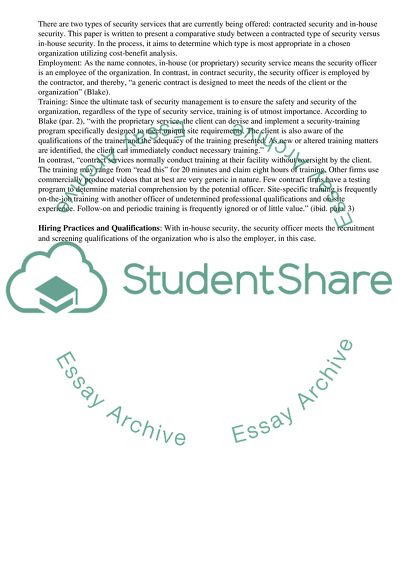Cite this document
(Contracted vs. In-House Security Paper Essay Example | Topics and Well Written Essays - 1500 words, n.d.)
Contracted vs. In-House Security Paper Essay Example | Topics and Well Written Essays - 1500 words. https://studentshare.org/business/1725000-contracted-vs-in-house-security-paper
Contracted vs. In-House Security Paper Essay Example | Topics and Well Written Essays - 1500 words. https://studentshare.org/business/1725000-contracted-vs-in-house-security-paper
(Contracted Vs. In-House Security Paper Essay Example | Topics and Well Written Essays - 1500 Words)
Contracted Vs. In-House Security Paper Essay Example | Topics and Well Written Essays - 1500 Words. https://studentshare.org/business/1725000-contracted-vs-in-house-security-paper.
Contracted Vs. In-House Security Paper Essay Example | Topics and Well Written Essays - 1500 Words. https://studentshare.org/business/1725000-contracted-vs-in-house-security-paper.
“Contracted Vs. In-House Security Paper Essay Example | Topics and Well Written Essays - 1500 Words”. https://studentshare.org/business/1725000-contracted-vs-in-house-security-paper.


